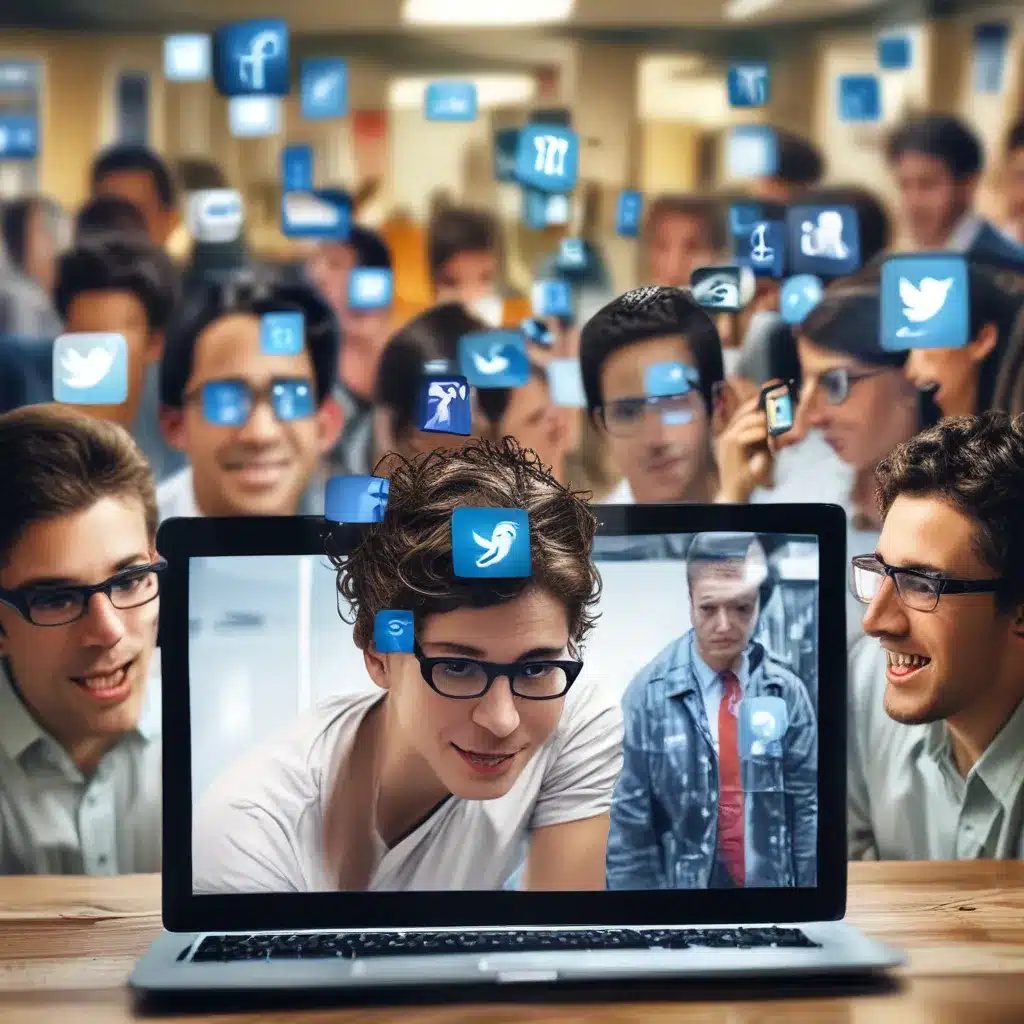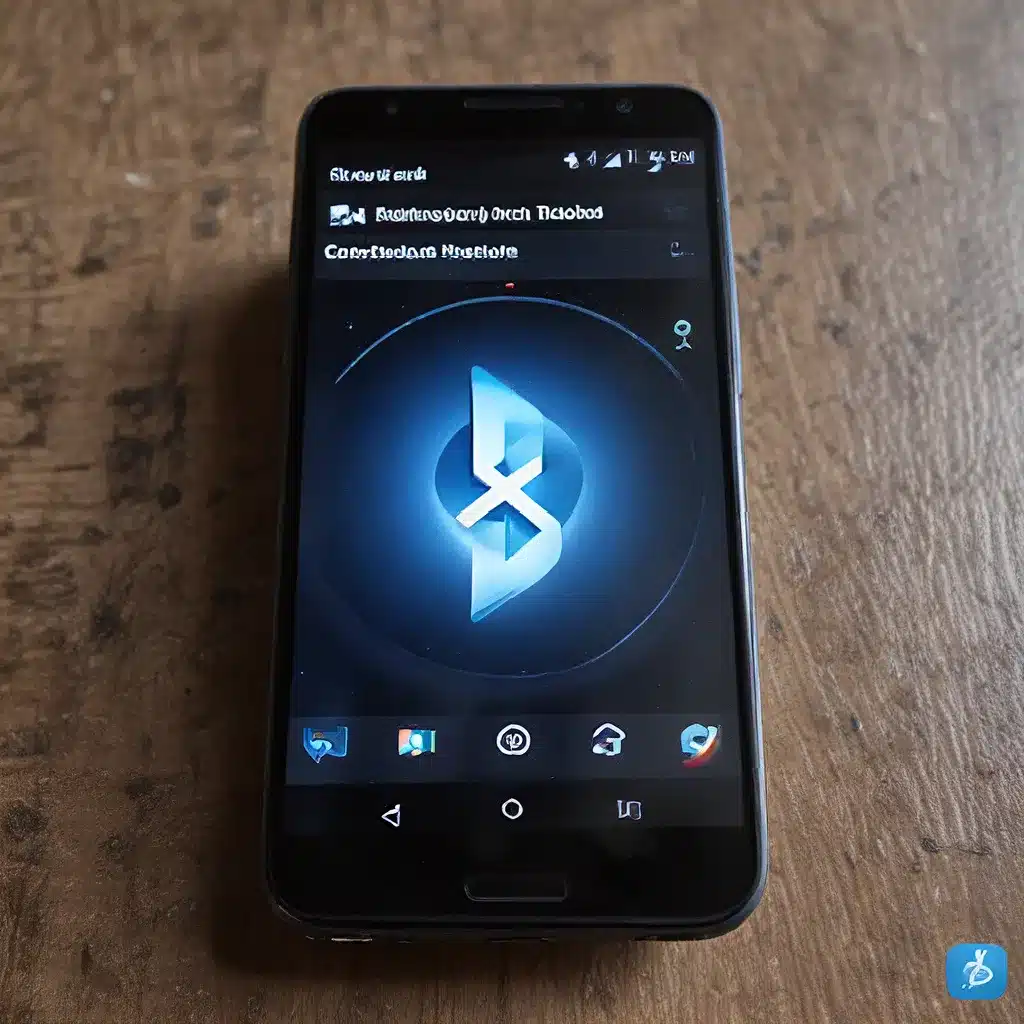The Social Media Trap
As an IT professional, I’ve seen firsthand how the lines between social media and reality can become blurred, often with profound implications for both our personal and professional lives. It’s a phenomenon that I’ve been grappling with for years, and it’s one that I believe warrants serious reflection and discussion.
Let’s start with the basics. Social media, at its core, is all about the careful curation of our digital identities. We meticulously craft the persona we present to the world, carefully selecting the photos, status updates, and stories that we share. In a way, it’s like a form of digital theater, where we’re the directors, producers, and leading actors all rolled into one.
And there’s an undeniable allure to this process. After all, who doesn’t want to present their best self to the world? It’s a natural human instinct, as psychologist Carl Rogers’ theory of personality suggests, to strive for self-improvement and to seek validation from others. Social media taps into this desire in a way that’s both empowering and, paradoxically, disconnecting from reality.
The Highlight Reel Phenomenon
Think about it – when was the last time you scrolled through your newsfeed and saw someone posting about their messy living room, their failed attempt at a healthy recipe, or their mundane Monday morning commute? Probably not very often. Instead, we’re bombarded with images of our friends and colleagues living their best lives – hiking in picturesque landscapes, sipping on artisanal coffee in trendy cafes, and jetting off to exotic destinations.
And therein lies the problem. Social media has become a highlight reel of our lives, a carefully curated collection of our most polished and photogenic moments. But as my girlfriend often reminds me, the reality is much more prosaic. “When are you going to post a real-life picture?” she’ll ask, “like you lying on the sofa in your underwear, watching Star Trek reruns?”
It’s a fair point. The truth is, the social media version of our lives is often a far cry from the messy, mundane, and sometimes downright boring reality. And the more we immerse ourselves in this alternate digital world, the more we start to believe that it’s the true reflection of our lives – and the more we feel like we’re falling short.
The Toll on Our Psyche
The statistics on this phenomenon are quite sobering. According to a 2012 UK survey, over 50% of social media users reported a decline in confidence due to “unfair comparisons” to others. And a Canadian study at York University found that Facebook users between the ages of 18-25 tended to have either narcissistic or insecure personalities.
It’s a troubling trend that speaks to the profound impact that social media can have on our mental health and well-being. We’re constantly bombarded with images of perfection, and it’s easy to start questioning our own worth, our own achievements, and our own place in the world.
The Dangers of Oversharing
But the problems with social media don’t stop there. In my work as an IT professional, I’ve seen firsthand the dangers of oversharing and the consequences it can have on our privacy and safety.
Take, for example, the all-too-common practice of posting our exact locations on social media. How many times have you seen a friend or colleague check-in at a restaurant, a gym, or even their own home? And how many of those people have their privacy settings set to “public”? It’s a terrifying thought, when you consider the potential for stalkers, burglars, or even identity thieves to use that information to their advantage.
As someone trained in social engineering, I can attest to the ease with which a determined individual can use this kind of information to gain access to sensitive data or even physical locations. And the risks only seem to be growing, as the line between our online and offline lives continues to blur.
A Call for Security Awareness
That’s why I believe it’s so important for all of us, whether we work in the IT sector or not, to take security and privacy seriously. It’s not enough to simply trust that our social media platforms will protect our information – we need to take an active role in securing our own data and protecting ourselves from the dangers of oversharing.
That’s why I always recommend that my family, friends, and colleagues take the time to review their privacy settings, to be mindful of the information they share online, and to consider participating in some form of security awareness training. It’s a small investment of time and effort that can pay dividends in terms of protecting our personal and professional lives.
And for those of us in the IT sector, I believe it’s our responsibility to lead by example. We should be the ones pushing for stronger security measures, more robust privacy policies, and greater transparency from the social media companies that have become such a ubiquitous part of our lives.
After all, as the IT Fix team knows all too well, the blurring of social media and reality can have serious consequences for our clients, our colleagues, and our own businesses. It’s a challenge that we need to confront head-on, with a mix of technological savvy and human empathy.
Finding a Healthy Balance
But it’s not all doom and gloom. I believe that there’s a way to find a healthy balance between our digital and physical lives, one that allows us to reap the benefits of social media without succumbing to its pitfalls.
For me, it starts with being mindful of the way I present myself online. I try to strike a balance between sharing the positive and motivational aspects of my life, while also being honest about the challenges and setbacks I face. And I make a conscious effort to avoid the temptation of comparing myself to others, or of trying to live up to an unattainable standard of perfection.
I’ve also found that practicing regular digital detoxes, where I step away from social media for a period of time, can be incredibly rejuvenating. It allows me to reconnect with the physical world, to focus on my relationships and hobbies, and to gain a fresh perspective on the role that social media plays in my life.
And when it comes to security and privacy, I’ve made it a priority to educate myself and those around me. I’ve taken Chris Hadnagy’s social engineering course, which has given me a deeper understanding of the risks we face. And I’ve worked with my colleagues to implement robust security measures and awareness training programs, to help our clients and our own business stay safe in the digital age.
The Way Forward
Ultimately, I believe that the blurring of social media and reality is a challenge that we all need to grapple with, both as individuals and as a society. It’s a complex issue, with no easy answers, but one that demands our attention and our collective efforts to address.
For those of us in the IT sector, that means staying on the cutting edge of security and privacy practices, and using our expertise to help our clients and our communities navigate this ever-evolving digital landscape. It means being proactive, being vigilant, and being willing to have the tough conversations about the impact of social media on our lives.
But it also means finding ways to reclaim our humanity, to reconnect with the physical world, and to find joy and fulfillment in the simple, everyday moments that social media often overlooks. It’s a balance that’s not always easy to strike, but one that I believe is essential for our mental health, our personal relationships, and the long-term sustainability of our businesses and our communities.
After all, the IT Fix team knows better than anyone that technology is a powerful tool, but one that must be wielded with care and wisdom. And when it comes to the blurring of social media and reality, that wisdom has never been more crucial.













